 Petzlover
Petzlover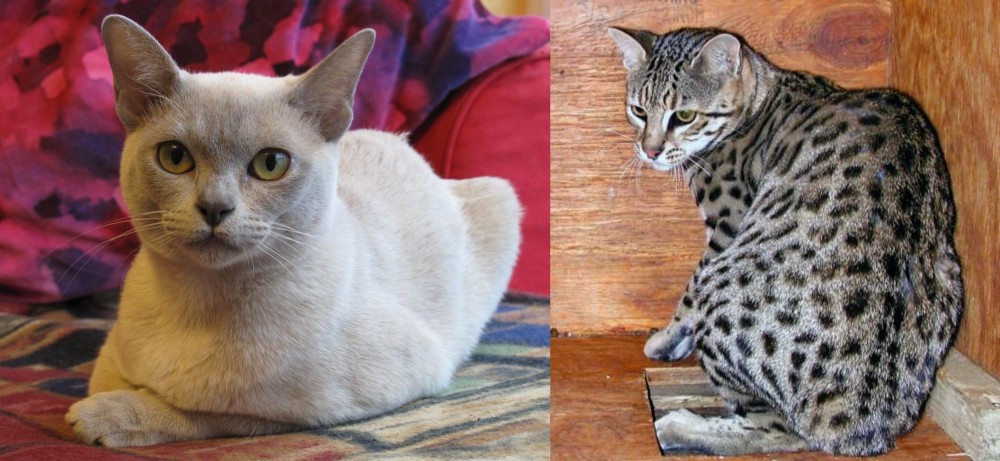 European Burmese is originated from Myanmar but Safari is originated from United States. European Burmese may weigh 6 kg / 13 pounds lesser than Safari. European Burmese may live 3 years less than Safari. Both European Burmese and Safari has same litter size. Both European Burmese and Safari requires Low Maintenance.
European Burmese is originated from Myanmar but Safari is originated from United States. European Burmese may weigh 6 kg / 13 pounds lesser than Safari. European Burmese may live 3 years less than Safari. Both European Burmese and Safari has same litter size. Both European Burmese and Safari requires Low Maintenance.
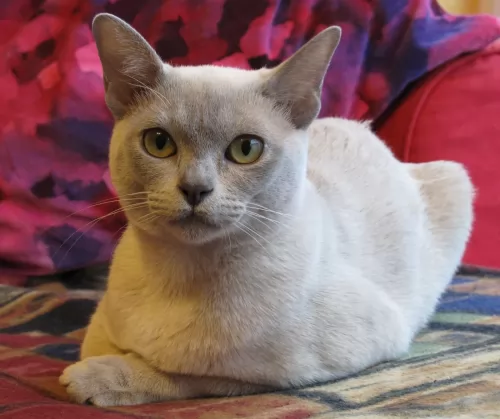 The European Burmese was developed in the 1960s when they were imported to England by British breeders.
The European Burmese was developed in the 1960s when they were imported to England by British breeders.
They were then crossed with red-point Siamese as well as British Shorthairs to expand the gene pool and number of coat colors.
In 1994, the cat was recognized by the Cat Fanciers Association and later by the Canadian Cat Association as well as the Cat Fanciers Federation and others as well.
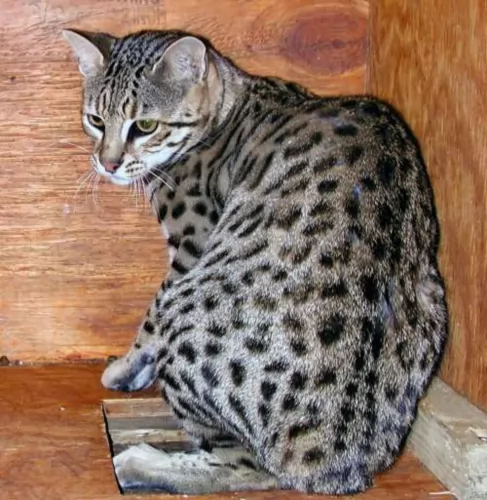 The Safari Cat, hailing from the USA, is one of the rarest breeds of cats. There are only about 70 of these cats registered at the International Cat Association.
The Safari Cat, hailing from the USA, is one of the rarest breeds of cats. There are only about 70 of these cats registered at the International Cat Association.
The Safari cat is a mix of a moggy and Geoffroy's cat. At first, the cat was used for research purposes by Washington State University but then cat breeders took over the development of the breed.
The name ‘Safari’ was chosen because of its wild look.
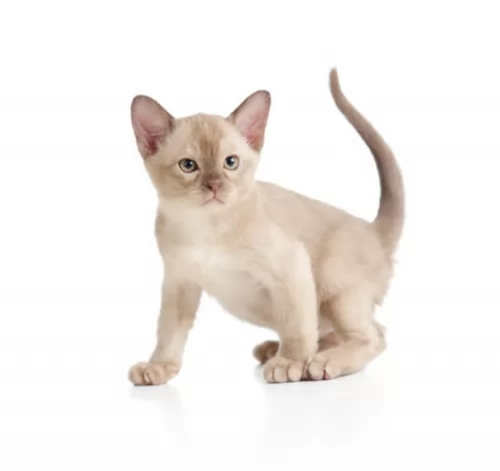 Your beautiful European Burmese cat is a small to medium-sized cat and both males and females will weigh between 3 and 5kg.
Your beautiful European Burmese cat is a small to medium-sized cat and both males and females will weigh between 3 and 5kg.
The cat’s coat is short and glossy and it comes in a number of different colors such as white, brown, cream, blue, red and tortoisehell.The cat has large, expressive eyes that are a yellow or amber shade.
Your European Burmese has a silky short coat and the coat will also only need to be brushed once a week to keep it in tip-top condition.
The European Burmese is a very affectionate, loyal ad intelligent cat, loving the companionhip they share with their human family.
They’re a great pet for families as they’re active and playful. They are also a cat breed that likes to bond with one particular family member more than others.
They’re also inclined to be lap cats, grabbing each opportunity to be stroked and petted. They will also be quite willing to become friends with other pets in the home and don’t like to be left alone for a long time.
They like having other pets around to keep them company and can become withdrawn if constantly left on their own.
 The hybrid Safari cat is a medium to large-sized cat that at first weighed in the region of 15kg, but the cat now weighs roughly 11kg.
The hybrid Safari cat is a medium to large-sized cat that at first weighed in the region of 15kg, but the cat now weighs roughly 11kg.
Its body is much like that of the wild parent, the Geoffroy – muscular and compact. The ears aren’t particularly large and are smallish, rounded ears with a fairly broad head.
It has a typical wild cat look and is a spotted or rosetted cat breed. Below the spots, the coat is a silvery grey shade.
The coat which is short actually comes in a variety of colors that come from both cat breeds. The eyes of this cat are either yellow or green. The Safari cat certainly has a wild cat appearance, because of the cross-breeding. This is a rare cat and because of this, there is no breed standard for it.
They can live to be between 17 and 20 years of age.
Even though one of the parent breeds is a wild cat, the Safari cat is described as an easy-going cat that can make a good pet.
The cat is very intelligent and playful and will enjoy swimming and climbing. It is for this purpose that he needs to have quite a large outside enclosure with a pool of sorts so that he can paddle.
There isn’t much information on their interaction with children and other pets in the home. While they are quite likely to make good pets where there are children, there would have to be supervision where there are small children. During play, these cats can bit. It would be extremely important to teach children to respect any animal and to be gentle and kind to them.
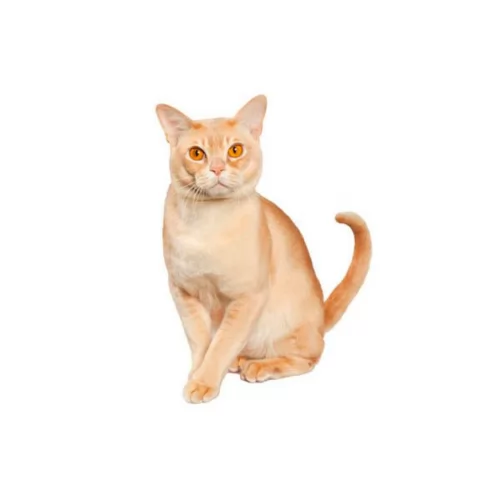 Your European Burmese has a sweet disposition and it is a loving, companionable cat. They enjoy the company of their human owners as well as other pets.
Your European Burmese has a sweet disposition and it is a loving, companionable cat. They enjoy the company of their human owners as well as other pets.
They can be quite vocal too and they don’t like being left alone. If you work all day, it will be a good idea to have another pet as a companion for the European Burmese.
The European Burmese loves to play and is a fun-loving, active, social cat. While they love their human family, they may not make the greatest pet for an inactive, single person as these cats actually seek out companionship.
A person unable to involve themselves with this cat, may well find it becoming depressed. These are cats that require a lot of interaction and attention, craving the attention of their human families.
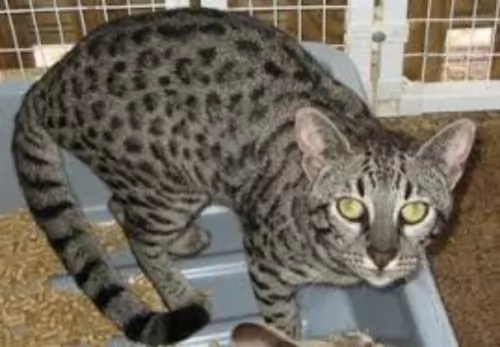 As a hybrid cat, your Safari is interesting alright, but unfortunately, you can’t ever be 100% sure of a hybrid cat. It needs careful consideration before you bring one into your home.
As a hybrid cat, your Safari is interesting alright, but unfortunately, you can’t ever be 100% sure of a hybrid cat. It needs careful consideration before you bring one into your home.
Apart from coming into the home from time to time, hybrid cats need an outside enclosure too that is securely fenced and gated and with a roof.
You made a decision to buy a cat with a wild side. It may live up to all your expectations but it may not either.
When you do research you find that the biggest number of behavioral complaints from owners of hybrid cats are about aggression issues and the refusal to use a litter box when indoors.
There is still a raging debate going on as to whether hybrids make suitable pets, but when you bring any animal into your home, as a responsible adult it is your job to provide well for it to ensure its happiness.
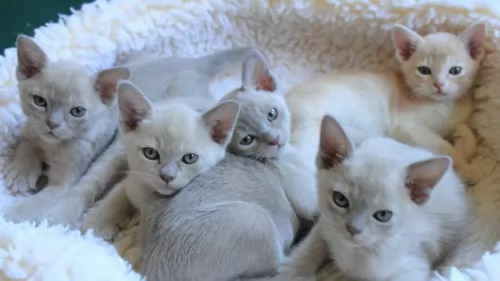 The European Burmese is a fairly healthy cat and is unlikely to cost you a lot in terms of vets fees.
The European Burmese is a fairly healthy cat and is unlikely to cost you a lot in terms of vets fees.
Just like with other cats, some of the common cat illnesses include developing diabetes mellitus. There have been some of these cats that ave been known to suffer from Feline Orofacial Pain Syndrome (FOPS).
It is a disease related to the teeth. Teeth problems are a common ailment with cats. With this particular problem, there is an unusual amount of pain when the cat's adult teeth begin to emerge. Your cat will be displaying a lot of licking and chewing motions. The symptoms do however go away once the adult teeth come in.
The cat will in all likelihood need to see the vet for pain medication and other treatments such as a potassium supplement.
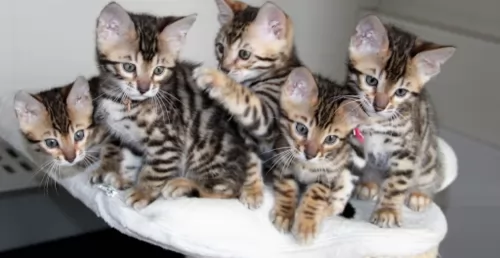 The Safari cat isn’t a particularly well-known breed so there isn’t much information on their health. They can suffer from the same illnesses as non-hybrid domestic cats.
The Safari cat isn’t a particularly well-known breed so there isn’t much information on their health. They can suffer from the same illnesses as non-hybrid domestic cats.
Certain hybrid breeds, such as the Safari, can sometimes have issues with reproduction as some cats are infertile. Domestic cats and wild cats have a different number of chromosomes and this results in reproductive problems, and stillbirths are quite common.
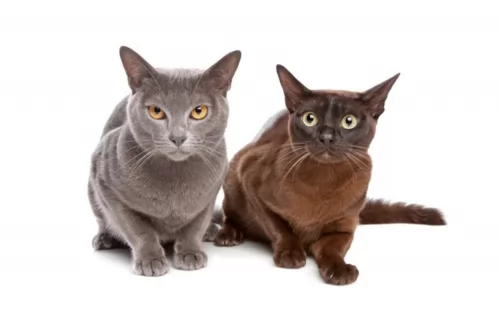 Because the European Burmese is a very affectionate, loyal cat, and because they thrive on the companionship of their human family, you owe it to him to provide him with consistent companionship. They are friendly cats and will be amicable to visitors to the home too.
Because the European Burmese is a very affectionate, loyal cat, and because they thrive on the companionship of their human family, you owe it to him to provide him with consistent companionship. They are friendly cats and will be amicable to visitors to the home too.
Scratching is a natural behavior of pets so instead of becoming angry with your cat when he scratches on your furniture, provide him with a scratching post.
You can also learn how to carefully clip your cat's nails, otherwise a professional cat groomer can do it for you.
It’s not always easy keeping a cat indoors and that is why neutering or spaying becomes important to avoid unwanted kittens. It makes your European Burmese a more balanced cat and it has a host of health benefits too.
It can’t be stressed enough how important good food is for the health of people and animals. The European Burmese needs top quality food high in proteins and meat to remain healthy.
If you feed your cat human food or food high in carbs, expect to spend a lot on vet fees.
Make sure your pet enjoys his food but that it is also nutritious and in the right portions to avoid obesity.
Kittens will eat 4 bowls of food a day and then progress to 2 bowls of food after the cat turns one year of age.
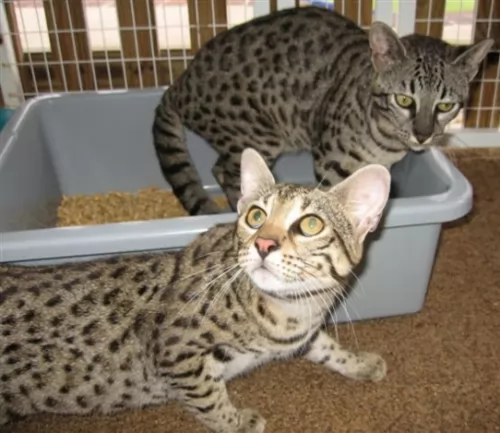 It is recommended that you brush this cat each week. He isn’t a big shedder but the brushing once a week keeps the fur in good condition, removing loose hairs and dust.
It is recommended that you brush this cat each week. He isn’t a big shedder but the brushing once a week keeps the fur in good condition, removing loose hairs and dust.
A high protein diet is imperative. Cats are carnivores and a meat diet is imperative. You can speak to your vet or a cat expert about feeding your Safari cat. Certainly, they need to be fed high-quality cat food. These foods are available in wet and dry form.
He will definitely need some raw meat. Make sure you understand the ingredients in some low- quality cat foods as corn for cats can be a problem for them, hard to digest and it could cause intestinal problems.